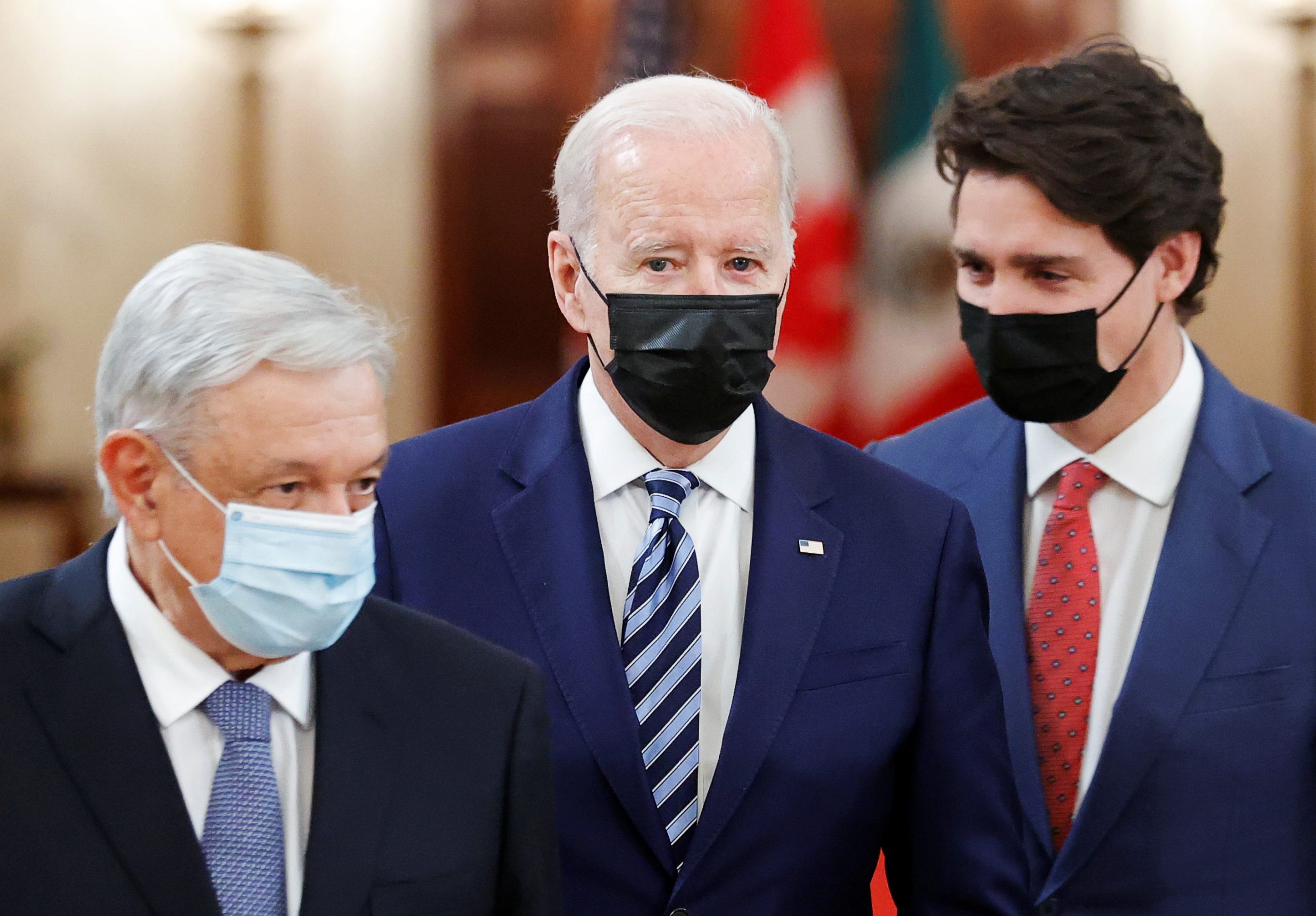
Willie R. Tubbs, FISM News
[elfsight_social_share_buttons id=”1″]
For the first time since 2016, the leaders of the United States, Canada, and Mexico convened to discuss issues of importance for North America. While COVID-19, sweeping social and climate programs, and economic matters were paid substantial attention, the true significance of the meeting was that it happened at all.
However, even though the in-person meeting of Canadian Prime Minister Justin Trudeau, Mexican President Andrés Manuel López Obrador, and President Joe Biden at the White House on Thursday was long overdue, the North American Leaders’ Summit was long on rhetoric and short on details.
“We are determined to make democracy deliver by providing a better future for all people, creating the conditions for prosperity, sustainability, security, and equity, as well as and by supporting the most marginalized and vulnerable among us,” the three said in a joint statement.
The leaders offered a lengthy, albeit nonspecific, list of agreements struck during the meeting. The plans covered a litany of social issues – climate change, vaccines, migration, and economic strategy to name a few – but were generally framed in terms of the nations pledging to work together to find solutions.
Symbolically, though, the meeting was meaningful. President Biden hoped to use the summit to mend relationships with the U.S.’s closest neighbors after former President Donald Trump had ceased to participate.
Trudeau, long an adversary of Trump, made it a point to refer to Biden and López Obrador as friends in a joint press conference.
“We are three countries with extremely strong ties between our people, with our visions and values for the future strongly united,” Trudeau said, later adding, “Our highest priority is, of course, ending COVID-19 and being focused on economic recovery, strengthened supply chains. We’re making sure that our integrated North American economy produces good jobs and supports the middle class in our three countries.”
As rosy as most of the summit seemed to be, there was a distinct underpinning of gloom.
López Obrador’s portion of the joint press conference was far more specific and focused on the economic and supply chain challenges currently faced by the three nations.
“We must not forget that while Canada, United States, and Mexico account for 13 percent of the world market, China [inaudible] 14.4 percent,” López Obrador said through an interpreter. “And this imbalance started out only 30 years ago. In 1990, China’s share was 1.7 percent and North America’s was 16 percent.
Mexico’s head of state also warned that a violent conflict could result if China’s market dominance continued.
“If the trend seen in the last decade should prevail for the next 30 years, by 2051 China would account for 42 percent of the world market and United States, Mexico, and Canada would remain with 12 percent,” he said, “which would not only [be] an unacceptable disproportion in the economic sphere, it would keep the temptation alive to bet on sorting out the disparity with the use of force, which would put us all in danger.”
López Obrador added that overreliance on products from the Indo-Pacific have created a burden on all North Americans.
“[The] deepest issue is that we are not producing enough and we are forced to importing merchandise from other countries,” he said. “It is a paradox that so much money circulates throughout North America and the ports of the Pacific are overwhelmed with merchandise from Asia. And we must add the inflation impact entailed.”
